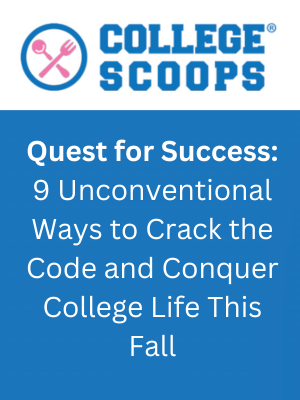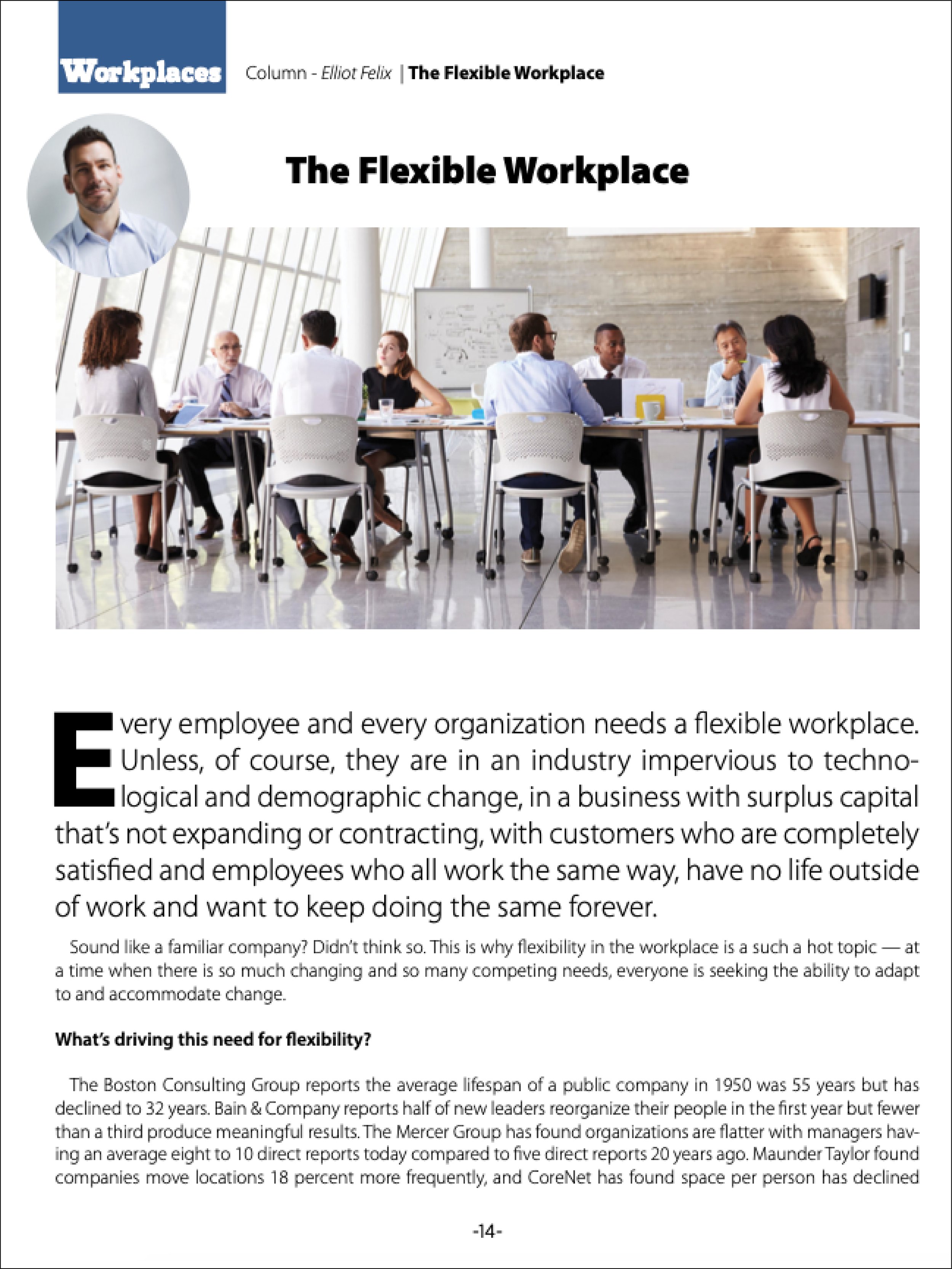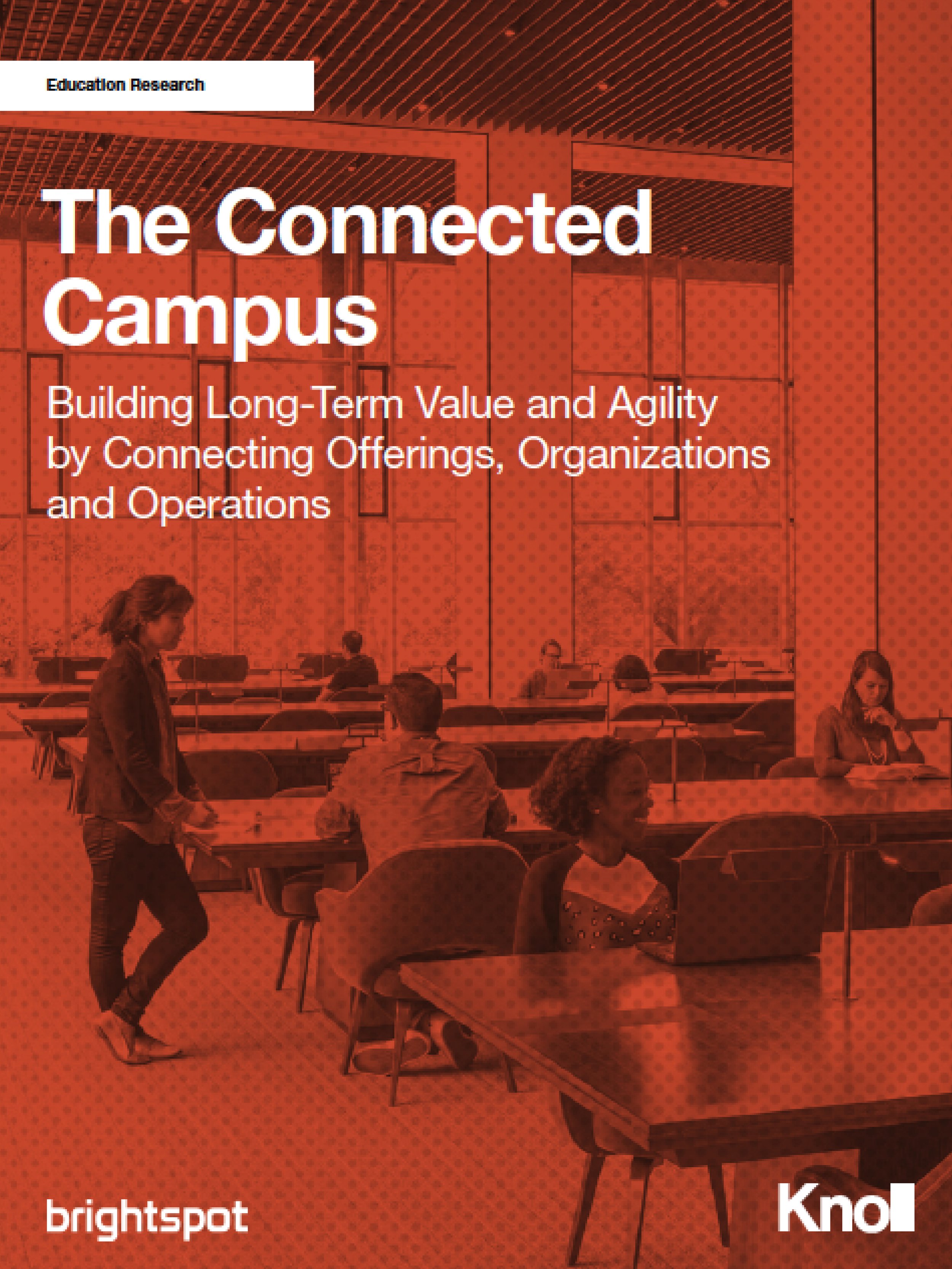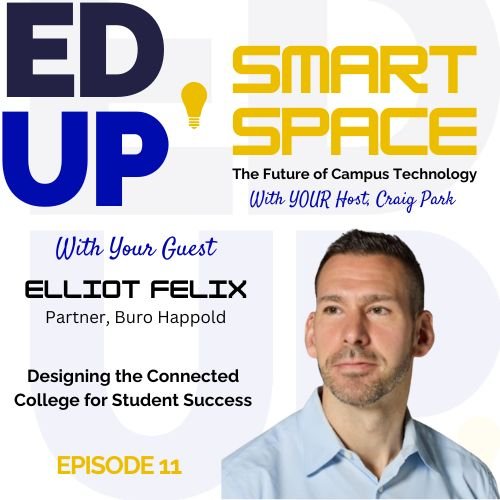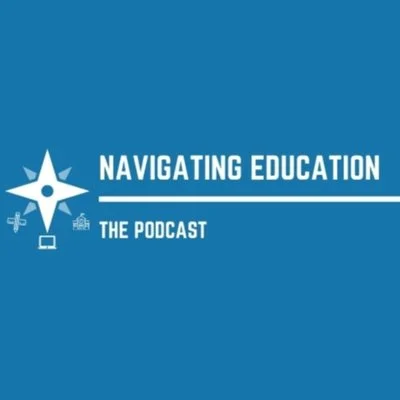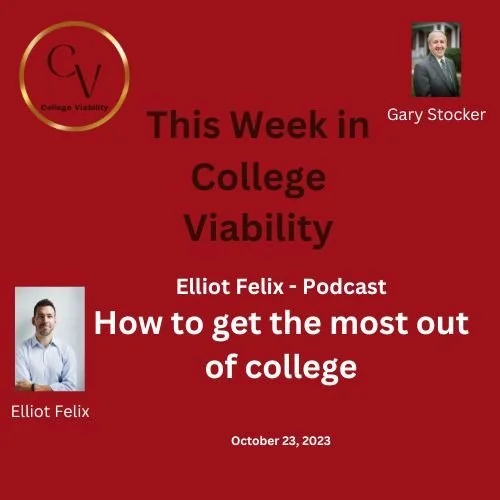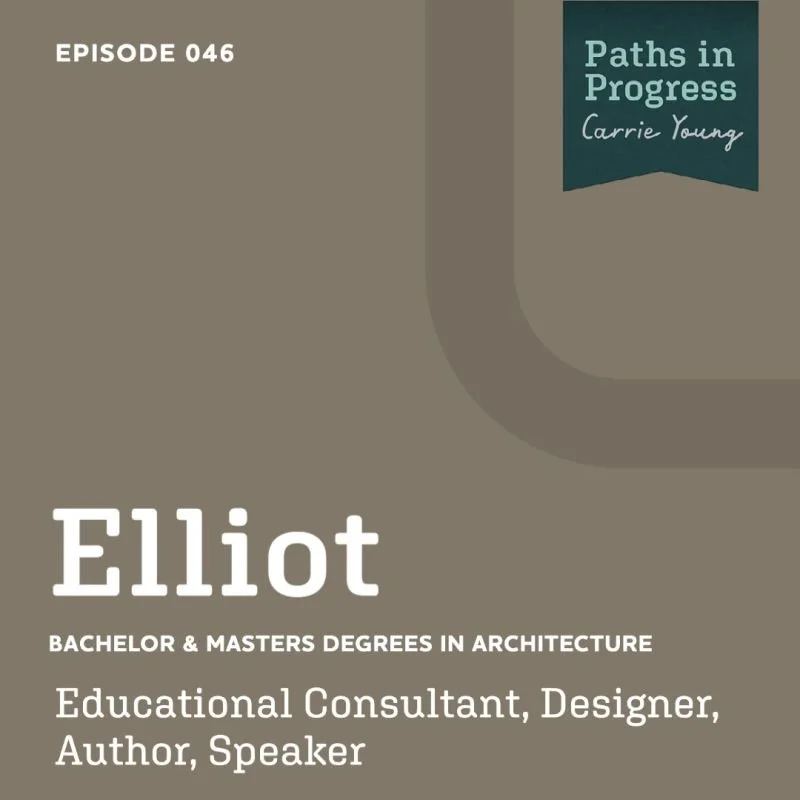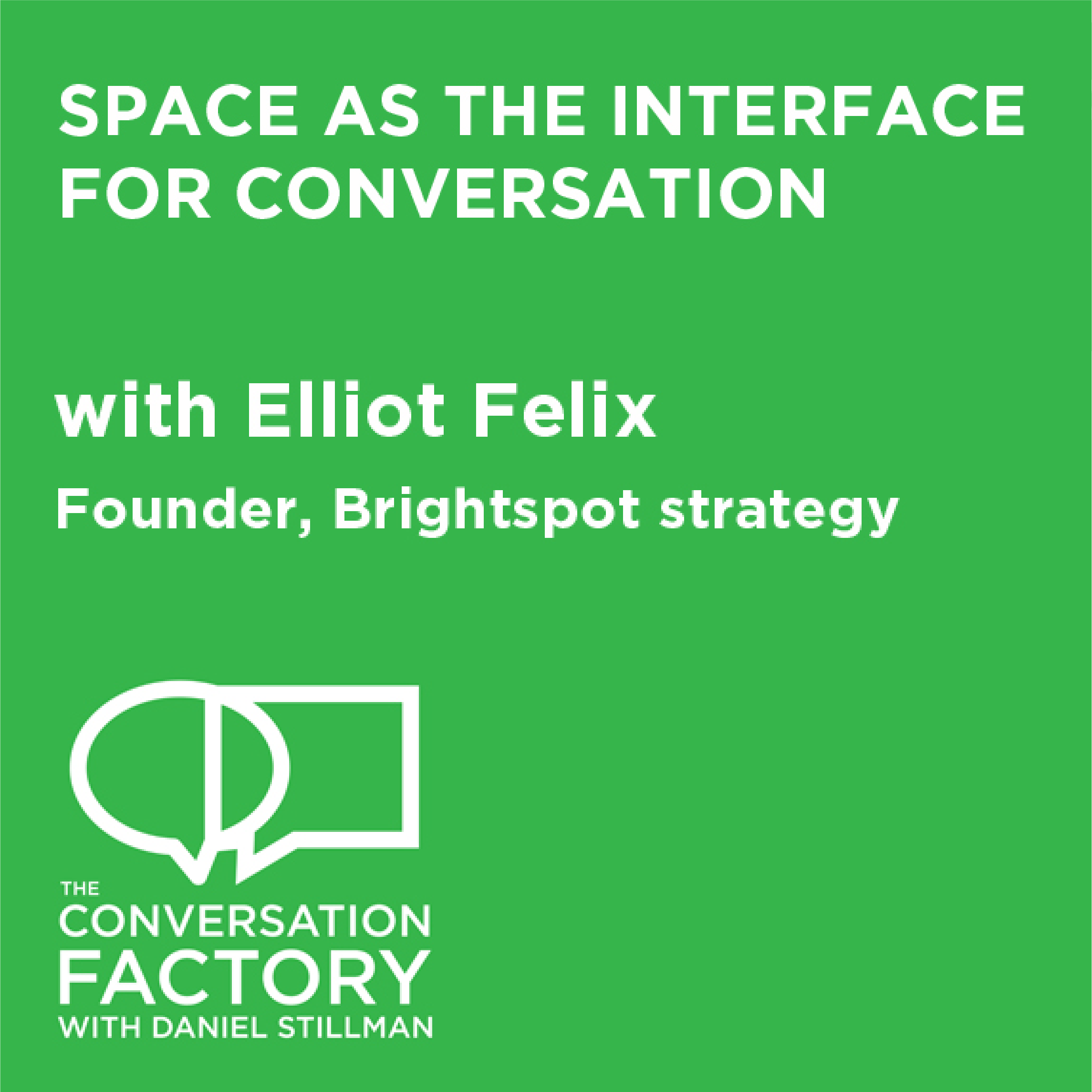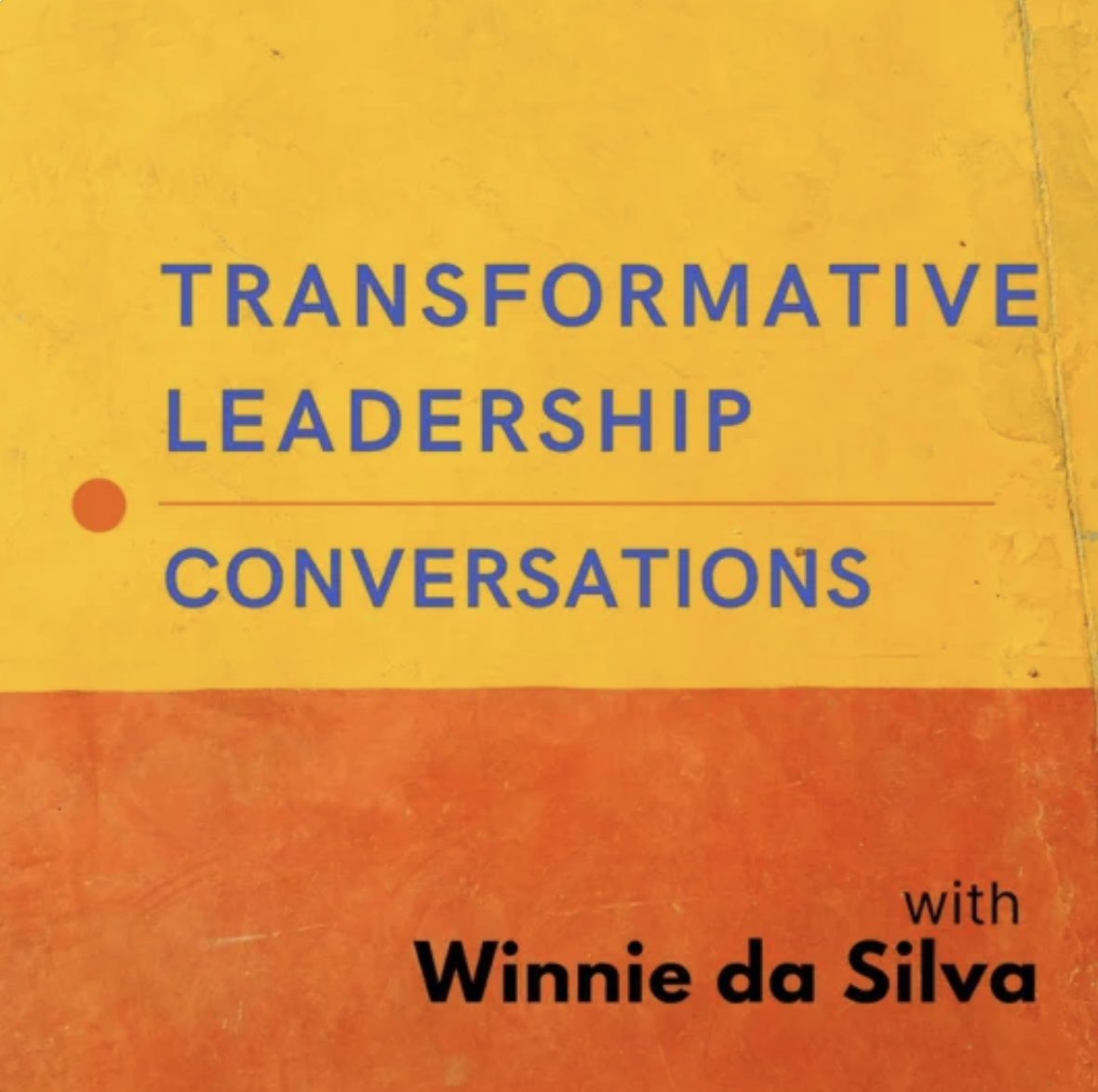Ideas
As I push to make college work for all students, I like to share my thinking – and think together with students, parents, professors, and college and university leaders. I do this through articles, talks, and interviews to inform and inspire. Let me know what you think!
Why do some innovation districts flourish while other fail? In this article with Adam Friedberg, Alice Shay, and Amanda Wirth Lorenzo, we answer this question based on our work and research along with interviews from expert district planners and operators. Together, we identify four ways to ensure a more equitable and sustainable innovation districts where people and places prosper.
Elliot had the chance to share his perspective on the gap between the learning and research activities happening on campuses and the spaces that support them with Christopher Buddle from McGill University in a guest column for APPA’s Facilities Manager magazine. We lay out the challenges and propose solutions: creating hybrid academic and facilities planning positions as connectors, establishing a culture of foresight, getting project governance right, and embracing change management.
Companies and colleges in the Twin Cities contemplating the future of work confront big questions. What does the next generation workforce expect? What can employers do to meet these expectations? What can colleges and universities do to best prepare their students for a new world of work? This article explains how understanding the mindset of today's students can help employers set themselves up for success with the next generation.
Academic libraries have long since been campus leaders on so many issues: active learning, open access, student success, diversity and inclusion, and more. Libraries are also not only the symbolic center of the campus but are large facilities often operated around the clock. Libraries have outsized impact academically, socially, and environmentally. It's time to lead the way in campus decarbonization
Universities and industry are working together in the Twin Cities to create remarkable educational experiences and conduct research that solves real problems for real people. In this article for Twin Cities Business’s Entrepreneurship Magazine StartMN, Elliot outlines the benefits of academia/industry collaboration, spotlights projects they are working on, and provides recommendation on how best to work together.
Universities are remarkable places that transform peoples’ lives. But neither their financial model nor environmental impact are sustainable. In this article, Elliot and co-author John Katzman provide ways for colleges and universities to increase their enrollment while reducing their costs, facilities, and carbon emissions.
College is a quest for success. This guest post for College Scoops provides students with map they can use along this journey and tips to move along it from How to Get the Most Out of College on everything from picking a dorm and choosing classes to finding mentors and internships to getting involved and building a network.
Today's students enter higher education facing a more complex, expensive, and uncertain environment than ever before. How can higher education technology leaders and their teams help students not only succeed but thrive? Go beyond providing and supporting tools. Create partnerships and offer programs that increase and enhance the use of technology so that students get the most out of college.
We spend a lot of time thinking about where to go to college – and we should given how much is at stake. But how you go to college matters just as much. Decisions college students make about where to live, which classes to take, what projects to work on, and how to get involved all have proven impact on what they get out of college.
College and university leaders are creating strategic plans to respond to changes at their institution and in the wider world. Many will fail. Avoid the common pitfalls: Confusing a plan for a strategy. No true planning team. Ignoring the market. Anodyne language. Deferred decisions. Prescriptive actions.
Colleges and universities are adapting to changing workforce needs, shifts to online learning, support adult learners, and compete with new credentials and companies. To create new degree or certificate programs, they need to study the market. Understand who your learners are, how many there are, where they are, what they want to learn, and how they want to learn.
At a time when the cost of higher education is rising and so are questions about its value, libraries can lead the way in enabling student success and helping students get the most out of college. College and university libraries must continue their transformation from places to access information to places to also create, connect, and grow.
Colleges and universities are in the midst of shift from an access mindset to a success mindset; from merely admitting a diverse range of students to helping them success with the right supports, people, and processes. Campus facilities can help make this shift and enable student success when planned with the right evidence.
This chapter from Designing 21st Century Libraries tells the story of the "library next" transformation of Georgia Tech Library's spaces, services, and staffing. The case study covers the extensive and innovative process of stakeholder engagement, needs assessment, shadowing and learning from library "lead users", and library service design.
In a time when students and families are questioning the value of higher education, this article provosts evidence-based advice for colleges and universities to help their students get the most out of college.
This essay makes the case for shifting our focus from where to go to college to how to go to college so students can get the most out of it. It’s the everyday decisions about where to live, what to major in, what to do a class project on, and where to do an internship that drive success.
This guest post summarizes How to Get the Most Out of College, with advice for parents and students on connecting classes, clubs, and career paths and provides examples of advice for specific student identities including first gens, transfers, veterans, student athletes, and more.
Reflection on the lessons from the pandemic on academic libraries to understand which adaptations will remain, what trends will accelerate, and where progress may be on hold. Will libraries continue as hubs that bring together information, collections, technology, services, and spaces to support creativity, create knowledge, build community, inspire concentration, and foster collaboration?
This Op-Ed observes how on-campus and online education are converging in a new hybrid, “phygital” world where classes, events, and advising combine the two -- and how colleges and universities are standardizing and scaling up what they offer and how they build community.
Contributor to report on how colleges and universities are transforming their spaces as a result of the Covid-19 pandemic to respond to the adoption of online learning and remote work in the face of tighter budgets while recognizing how campuses foster community and connection.
The pandemic has shown that colleges and universities must transform what they offer, how they are organized, and the ways they operate to remake higher education for the better, starting by debunking the fallacies about students, structures, schedules, and spaces that hold us back.
(Co-Authored with Sanjit Sethi, President, Minneapolis College of Art and Design)
How can spaces, schedules, services, and structures be more flexible so that people can be healthy, passionate, and productive? This is the first in a six article series about the different aspects of flexibility we all need in our workplaces, each one full of references and examples.
How will COVID-19 change how libraries offer their collections and services in the long term? How will it change the nature of how librarians work? This article provides a vision of the future in which libraries become true connectors of people and catalysts for discovery.
(Co-Authored with Christopher Cox, Dean, Clemson University Libraries)
How are changes in demographics, technology, and economics reshaping colleges and universities and their campuses? Imagine a more connected future in which teaching and research, student affairs and academic affairs, and academia and industry all work together
Universities are questioning how much space will be needed in the future campus, how it will be operated, and how to make our built environment more healthy, sustainable and resilient. This article provides a way forward by thinking about people, operations, and environment together.
(Co-Authored with Kelly Sanford, David Herd, and Stuart Brumpton of brightspot and Buro Happold)
To fulfill a new purpose focused not just on access but on creating and connecting, libraries must enable new experiences and offer new services. This chapter from Beyond the Information Commons provides an overview of emerging needs for new services, identifies the steps to rethink library services, and outlines strategies for how libraries can redesign their organizations to deliver these services.
Colleges and universities inspire their students, conduct game-changing research and contribute to their communities, but there are changes affecting higher education. This article describes how five principles and five practices of service design can help higher ed transform.
This chapter in Leading Change in Academic Libraries covers the case study in service and organizational transformation for Miami University's Libraries. We provide an overview of the process, tools, and methods used to develop a new service model and then to reorganize staff to align with it.
How can institutions enable student success when students depend on support services that are spread out? This article answers this question with a case study of a Learning Commons that brought together people and services for research, data, creativity, and communications.
(Co-Authored with Kelly Miller from University of Miami and Adam Griff from brightspot)
When taking on a project to create a new space or rethink student support services, many committees at colleges and universities function like a sports team in which people don’t know who’s playing what position, what the rules of the game are, or how to win. There’s a better way.
In a virtual book talk with Rutgers Samuel DeWitt Proctor Institute, Elliot shared insights from The Connected College and his consulting work with 100+ colleges on how higher ed leaders can work together to help students feel a connection to their communities, connect students with support services, and connect coursework to rewarding careers.
How can better connected colleges and universities enable student success? What can institutions do to get over, around, or through barriers like strategy, structure, and culture so they can bust silos, question tradition, and make bold decisions? Elliot answers these questions in this 35 min talk (w/ Q&A removed) from his keynote at the Association of Jesuit Colleges and Universities Annual Meeting.
How can you align the services and programs you offerings, how your team is organized, and how you operate to maximize student success? Elliot answers these questions in this 15 min except of his workshop at the Institute for Student Services Professionals annual conference, based on my books and my consulting work with more than a hundred colleges and universities.
What roles can space play in enabling college student success? In this 20 minute talk at the Urban Land Institute’s University Innovation and Development Council, Elliot answer this question in three parts: fostering community and belonging, providing support services, and enabling experiential learning like real-world class projects.
Elliot presented "Ten Steps to Library Service Transformation" at the Association of Research Libraries (ARL) 2024 Spring Meeting and participated in a panel discussion with Mary Ann Mavrinac and Megan Waters that was moderated by Diane Bruxvoort. In this ~15 minute talk, he covers needs assessment, benchmarking, goal setting, service design, partnership strategy, and organizational design for student success.
Elliot was interviewed about the Learning Lab he teaches for EDUCAUSE on understanding and improving student experiences. The online class, taught in four sessions over a month, actively engages folks from academic technology, libraries, academic affairs, and student affairs so that they better understand their students, they needs, and how they are changing. Then, it takes them through a process of envisioning better experiences using design thinking “canvas,” prototyping, and guest speakers. This interview recaps highlights of the course.
Elliot facilitated a workshop for first year Walentas Scholars at UVA. The Walentas Scholars are first-generation students with exceptional potential in the areas of leadership, scholarship, and engaged citizenship. He covered 11 key tips from How to Get the Most Out of College and facilitated a “find your focus” activity to help students think about future majors and careers – and ways to explore and test these directions.
Elliot spoke in the first year seminar at Minneapolis College of Art and Design (MCAD). He shared insights from How to Get the Most Out of College on owning and designing your college experience. He covered 10 key tips from the book on understanding your strengths, setting goals, getting involved, asking for help, real-world class projects, internships, mentoring, and leadership. He also facilitated a discussion with students on the highlights and challenges in their first year.
Elliot was interviewed on the scaling secrets podcast to share insights from How to Get the Most Out of College to benefit from all the great things their college or university has to offer for students to find their people, purpose, and path. They also talked about what today’s students are looking for. Growth is the best measure of their satisfaction with their education and their top priority in the workplace – the next gen workplace needs to make it easy not just to get coffee and collaborate but booking a coaching session should be as easy as booking a conference room.
Elliot led and facilitated a discussion about the next generation workforce and next generation workplace based on his work with more than 100 colleges and with top companies seeking to attract, engage, support, and develop talent. He talks about how what they experience in college affects what they expect in the workplace, what employers can do to prepare for and meet these expectations, and what college and universities can do to partner with employers and best prepare students for the future. #futureofwork #genz #nextgenworkforce #nextgenworkplace
As part of an introductory workshop on facilities programming and planning for universities, research organizations, and technology companies, Elliot provides a short overview of strategic facilities planning where strategic plans or business plans are translated into facilities, strategically by understanding external drivers and the competitive landscapes, forecasting headcounts, translating people into space needs, conducting a gap analysis, and defining and delivering projects to close these gaps. #strategy #planning #facilities #facilitiesplanning #facilitiesprogramming #highered
As part of an introductory workshop on facilities programming and planning for universities, research organizations, and technology companies, Elliot first provides a short overview of key trends changing how people learn, live, and work. Then he outlines advice and lessons learned on anticipating and adapting to social, demographic, technological and economic changes so that facilities can be responsive and meet people's needs even as they change. #trends # change #strategy #planning #facilities #facilitiesplanning #facilitiesprogramming #highered
Elliot spoke with students from St. Croix Preparatory Academy as part of their career day. He shared insights from How to Get the Most Out of College on both searching for, preparing for, and succeeding in college. This included tips on understanding yourself, balancing prestige and price, and finding the best fit as well as where to live, how to get involved and find support, and using classes to explore careers.
Elliot spoke with Dale Troy from Crush College Stress and The College Parent Support Community on Facebook. They talked about what to do in high school to position yourself for success in college, what to focus on to transition well, and what resources to take advantage of in college to get the best return on your investment of time and money.
Student expectations have changed as a result of the pandemic. The way they understand, learn, interact, communicate, and evaluate their college experience is fundamentally different than just a few years ago. Elliot and co-presenter Cedric Howard from University of Northern Colorado dig into what student affairs professionals can do to understand these changes and meet post-pandemic students where they are.
Engineering is changing with the rise of computation and AI, new partnerships with industry and governments, and shifting professions and career paths.
How can you understand what you have today, envision what you need for tomorrow, conduct a quantitative and qualitative gap analysis between the two, and identify the key strategies to move forward?
Elliot was a guest on Pathify’s Connected Campus podcast. He and host Dustin Ramsdell dig into where and how physical and digital campuses intersect. Then they discuss how colleges and universities can adapt to the hybrid future in order to better engage and support all of their students.
Elliot will facilitate a pre-conference workshop on designing services and spaces for student success as well as be a panelist on a discussion about student success at the 9th Designing Libraries Conference.
In this 20 minute talk with CFO University, I share my story and review my Op-Ed with Sanjit Sethi on debunking higher education’s fallacies. Then we talk about how students can take ownership over and design their own learning experiences – online and on campus – to get the most out of their education. Finally we dig into the pandemic’s impact on the value of being together but also providing greater flexibility.
Elliot will present and facilitate a discussion among leaders in higher education, healthcare, and hospitality about what higher ed can learn from other industries about how to foster a sense of community and belonging.
This 7 minute video tells the story of How to Get the Most Out of College so that you can think not just about where to go to college but how to go to college – and get practical tips on making the everyday decisions about class projects, support services, and community that help you succeed. This way students can be the designers of their own college experience and find their place, people, program, and path.
Elliot gave the keynote presentation and facilitated a workshop for the Collective Success Network’s mentoring program for first gen and low income students. He drew upon research from Gallup, brightspot, and others to outline what students can do in college in order to set themselves up for success in the workplace – and helped them imagine their ideal future experience at work.
Elliot and Jonathan Myers from Arizona State University presented at the NASPA Student Success Conference. They led an interactive session focused on common student challenges like access, belonging, and scale and then reviewed ASU’s strategies for addressing them such as hybrid tutoring sessions, AI chatbots, and “home away from home” spaces for students.
Elliot taught a four-session EDUCAUSE online course for instructional technologists how how to design a collaborative instructional technology support model. Using the Service Center Canvas he developed, Elliot helped more than 50 institutions understand student and faculty needs and then design and deliver the support services needed to enable online, blended, and hybrid learning.
Elliot presented with Sarah Sachs on six trends reshaping campuses, and how to plan for them: community connections, collaboration, interdisciplinary projects, experiential learning, student wellness, and workplace transformation. Together they references a broad set of data and reports on trends and used case studies to illustrate how to respond to them.
It's not just where you go to college but how you go to college. In this 15 minute video I provide an overview of the ideas, organization, and format of my book How to Get the Most Out of College. It features 127 research-based tips that students can use at the building blocks for a customized college experience, one in which they find their place, people, purpose, and path.
At the NASPA Annual Conference, Elliot presented trends on the student experience during the pandemic and facilitated a discussion among six student affairs leaders about how they are changing their services, staffing, and systems to become more student-centered, agile, and equitable.
What is the future of learning in higher education and will this mean for student experience and campuses in the future? In this keynote presentation, I answer these questions with insights on the science of learning, broader societal trends, edge cases that provide some further clues about the future, and insights from my book How to Get the Most Out of College.
As part of a panel discussion, I talk about how libraries are leading the way to transform higher education in the future as adaptable, student-centered places – places that bring together support services, advance equity and inclusion, and enable experiential learning where students work in teams on projects that make a difference.
This talk provides an overview of the Connected Campus whitepaper. Learn how on-campus and online education are converging, how the pandemic is accelerating and decelerating trends reshaping higher education, and how colleges and universities must reimagine their positioning, programs, people, and places as a result.
Elliot rejoined the Higher Ed Geek Podcast to help institutions work better together—from breaking down silos to smarter strategy execution. This offers a hopeful and practical roadmap for change for institutions wrestling with disconnection, dwindling resources, or just too many redundant tools and services.
Elliot was a guest on The College Viability Podcast with Gary Stocker. They talk through how colleges and universities can collaborate internally and partner externally to create a more sustainable future. Then they dive into specific strategies like academic program reviews, experiential learning, and data-driven decision-making.
Elliot was a guest on the EdUp Smart Space Podcast to explore strategies for creating the connected college experience in innovative learning environments at the intersection of education, technology, and architecture. He and host Craig Park Discussed trends in higher education and ways that colleges and universities can adapt to help students succeed.
Elliot joined the University Industry Innovation Network (UIIN) for a “fireside chat” about the role the places and programming can play in catalyzing collaboration and entrepreneurship. They talked about trends reshaping higher ed, how to institutions and industry can partner on experiential learning and research, why innovation districts flourish or fail, and how design thinking can bring people together to make strategy and operations more successful.
Elliot returned as a guest on the College and Career Clarity Podcast hosted by Lisa Marker-Robbins. Lisa and Elliot talked about how students and parents can tell if a college is “connected” to set students up for success. They identify the different kinds of connections to seek; for example, such as coursework and club activities that tie to careers, one-stop-shop student services, and next generation libraries that are hubs for student support services.
Elliot was a guest on the Get Down to College Business Podcast hosted by Sarah Holtan, PhD. Sarah and Elliot talked about what how what the barriers to collaboration and partnerships in higher ed are and how to get over (or around) them. They talk through tactics when strategy, structure, and culture get in the way of student success and inspiring examples drawn from Elliot’s research and consulting.
Elliot was a guest on the Positive Philter podcast hosted by Philip Wilkerson. Elliot and Philip talked about the research and advice in How to Get the Most out of College, including why the book was written, the most pressing issues facing college students and higher education, advice for first year students as they enter college, and where higher education is headed.
Elliot was a guest on the College Spy Podcast hosted by college admissions consultant Michelle McAnaney. Michelle and Elliot talked about what students and parents can do to prepare for and get the most out of college — how to take full advantage of what their college has to offer in terms of spaces, services and funding. They also discuss how students touring colleges should evaluate these items and how important they can be when choosing a college.
Elliot was interviewed on the scaling secrets podcast to share insights from How to Get the Most Out of College to benefit from all the great things their college or university has to offer for students to find their people, purpose, and path. They also talked about what today’s students are looking for. Growth is the best measure of their satisfaction with their education and their top priority in the workplace – the next gen workplace needs to make it easy not just to get coffee and collaborate but booking a coaching session should be as easy as booking a conference room.
Elliot was a guest on the Navigating Education Podcast, hosted by Matthew Rhoads, Ed.D. He and Matt discussed how colleges and universities are adapting to change, the value and return on investment in a college education, and how new technologies like AI impact the ROI of college – and what students can do to get the most out of it in an out of their classes.
Elliot was a guest on the Tangents Podcast by Out of Architecture, a career consulting firm that specializes in helping people like me who were trained as architects pivot to get the full value of their skills beyond architecture traditional practice. In our conversation, we talked about my journey from architecture to design thinking and strategy consulting, observations from two decades working with and adjacent to architects, and my lessons learned on higher education from work with a 100+ colleges and universities — in general and for architecture and design education specifically.
Elliot was a guest on the College Parent Podcast where he talked with hosts Zach and Olivia about what students and parents can do to prepare for and get the most out of college. They cover finding support, best-kept-secret resources, the role of campus facilities in student success, and how parents can learn about college today since it’s changed so much since they went, if they did.
Elliot was a guest on the Podcast This Week in College Viability. College Viability helps families and institutions understand their financial health. In this in-depth conversation, Elliot and host Gary Stocker go through ways for student to maximize the ROI from college given its cost, along with advice for parents and higher ed leaders to find and create value – and therefore viability and financial health.
Elliot was a guest on the College Life podcast. The podcast has an inspiring mission to bring clarity and purpose for students to make progress leading a life they love. Elliot talked about his college journey and shared insights from How to Get the Most Out of College on having a growth mindset, advocating for yourself, belonging, working on projects with impact, career check-ups, and more.
Elliot was a guest on the Your College Bound Kid podcast. He and co-host Dr. Lisa Rouff dig into Elliot’s path from architect to educational consultant to author. Elliot then shares insights from How to Get the Most Out of College on where to live, finding community, getting help, exploring careers, and more.
Elliot was a guest on the Campus Confidential podcast from the Compass Group. He and hosts Loren and Kelsey dig into Elliot’s education and background, consulting work, and book on student success. They talk about how and when to pivot in your career, about using design thinking to de-risk projects, and finding inspiration every day.
Elliot was a guest on Pathify’s Connected Campus podcast. He and host Dustin Ramsdell dig into where and how physical and digital campuses intersect. Then they discuss how colleges and universities can adapt to the hybrid future in order to better engage and support all of their students.
Elliot was a guest on the College and Career Clarity podcast with Lisa Marker-Robbins from Flourish Coaching. They talked about some of the ways to get the most out of college like getting involved, finding mentors, and doing real-world projects – and how to test these things out before college to find the right one and explore career paths.
Elliot was a guest on the Changing Higher Ed Podcast with Dr. Drumm McNaughton. He shared his work with colleges and universities to help students feel a sense of belonging, find support, and to connect their classes with a career. They discuss how to do this with enhancements to facilities, student services, and technology and increase enrollment, retention, and graduation rates.
Elliot was a guest on the Paths in Progress Podcast with Carrie Young. He shares his story – the teachers and experiences that inspired him to study architecture, working in the profession, evolving to focus on researching people and developing design briefs for buildings and campuses, and ultimately moving into educational consulting as a design thinker and strategist.
Elliot talks with Vicki Nelson and Lynn Abrahams about how students can design their own experience in college to take full advantage of everything it offers. We cover why it’s not just where you go but how you go to college that matters, the impact of the pandemic on higher education, what a student-centered college looks like, and how spaces can help students succeed.
Elliot talks with Dustin Ramsdell about the who, how, what, and where of college. They touch on what’s changing in higher ed and ways that ways students, parents, counselors, and higher ed folks in student affairs, tech, and facilities can use the book to understand where they are today and where they want to be in the future.
Elliot talks with Joe Sallustio and Amardeep Kahlon about consulting work transforming spaces, services, and systems to improve student experiences, a 2021 market research project with Joe, and the inspiration for and ideas in How to Get the Most Out of College.
Elliot talks with architect Guy Geier about the future of higher education and how architecture can best support it. He offers reflections on the lessons of the pandemic, some predictions on the future 5, 10, and 20 years out, and advice for architects on understanding and supporting the people they design for.
Elliot talks with Rutgers University Professor and Executive Director of the Center for Minority Serving Institutes Marybeth Gasman about how he uses he background in design to create better experiences for students, what students can do vs. what they can expect from their college or university, and advice for students on making connections.
Elliot talks with Mike Palmer about how design can help reimagine campuses, support services, and technology to make college work for all students. A wide-ranging conversation about user-centered design, innovation in learning spaces, the impact of the pandemic, and Elliot’s book on how to get the most out of college provides a window into higher ed that you won’t want to miss.
Elliot talks with conversation designer and facilitator Daniel Stillman about how the spaces we’re in shape how we talk and how we think. The interview takes place as we tour brightspot’s office in NYC’s financial district and tell stories about how concepts of home inspired the office – we had a den, a kitsch, a library, a studio, and front porch – and how we used it.
Elliot talks with leadership coach Winnie Da Silva about his experience founding, growing, and leading his company brightspot, a higher education strategy consulting firm. They dive deep on leading a company through the pandemic during compounding public health, racial justice, financial, and climate crises and what leaders can do to reduce uncertainty for their teams.
Elliot talks with Carolyn Clark Beedle “CCB” about the major social, demographic, and technological shifts that colleges and universities are facing, why Elliot founded is higher education strategy consulting firm brightspot, and how brightspot helps colleges and universities meet these challenges with innovative tools, a proven process, and a talented team.
In this interview for the Rebel Playbook for Employee Engagement, Elliot talks with Glenn Elliott about the role of the workplace in employee engagement. They dig into understanding people to better design for them, how to think about activities and events and not just space itself, and how to intentionally shape norms and culture to help people be engaged and productive.






